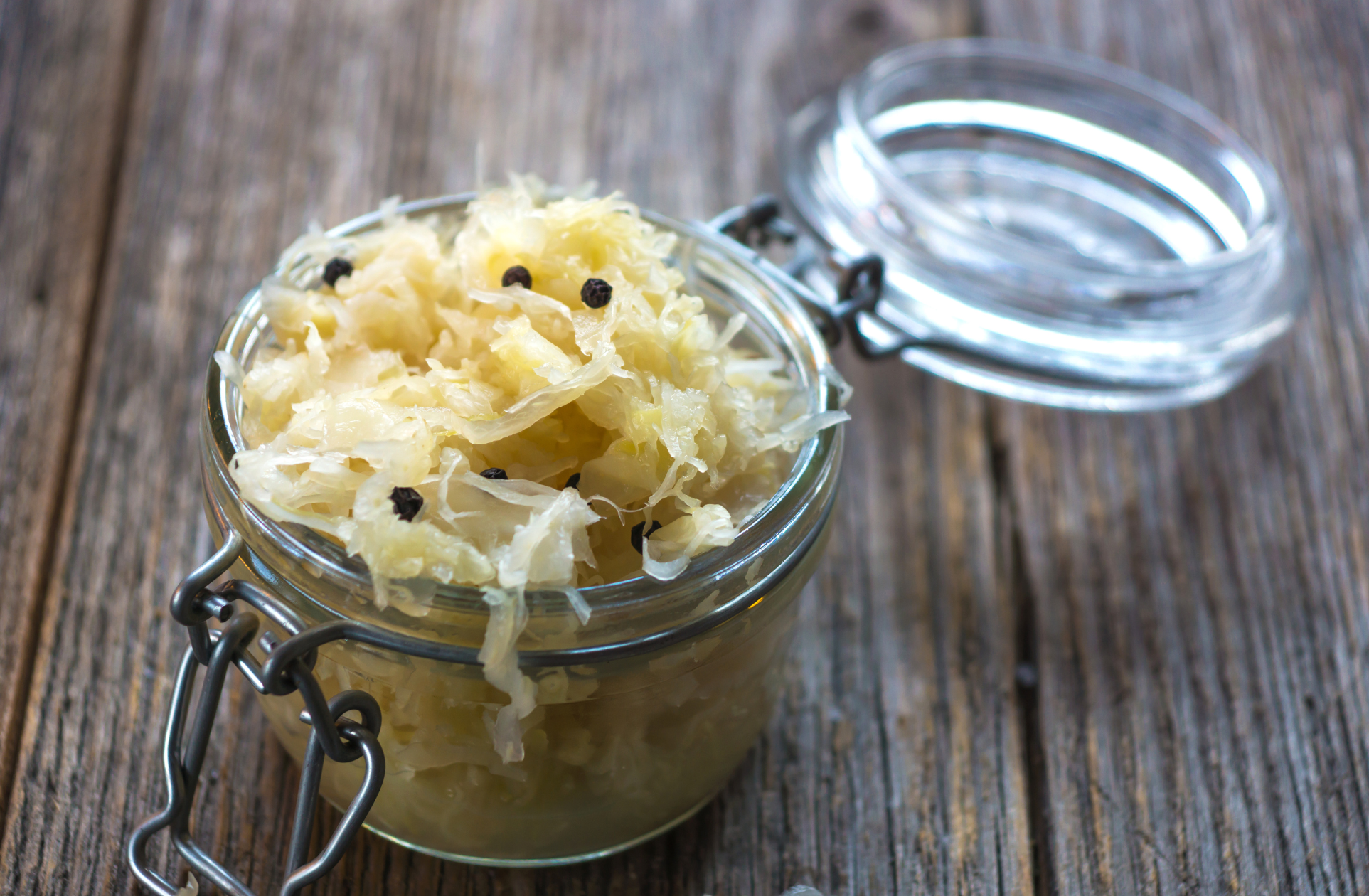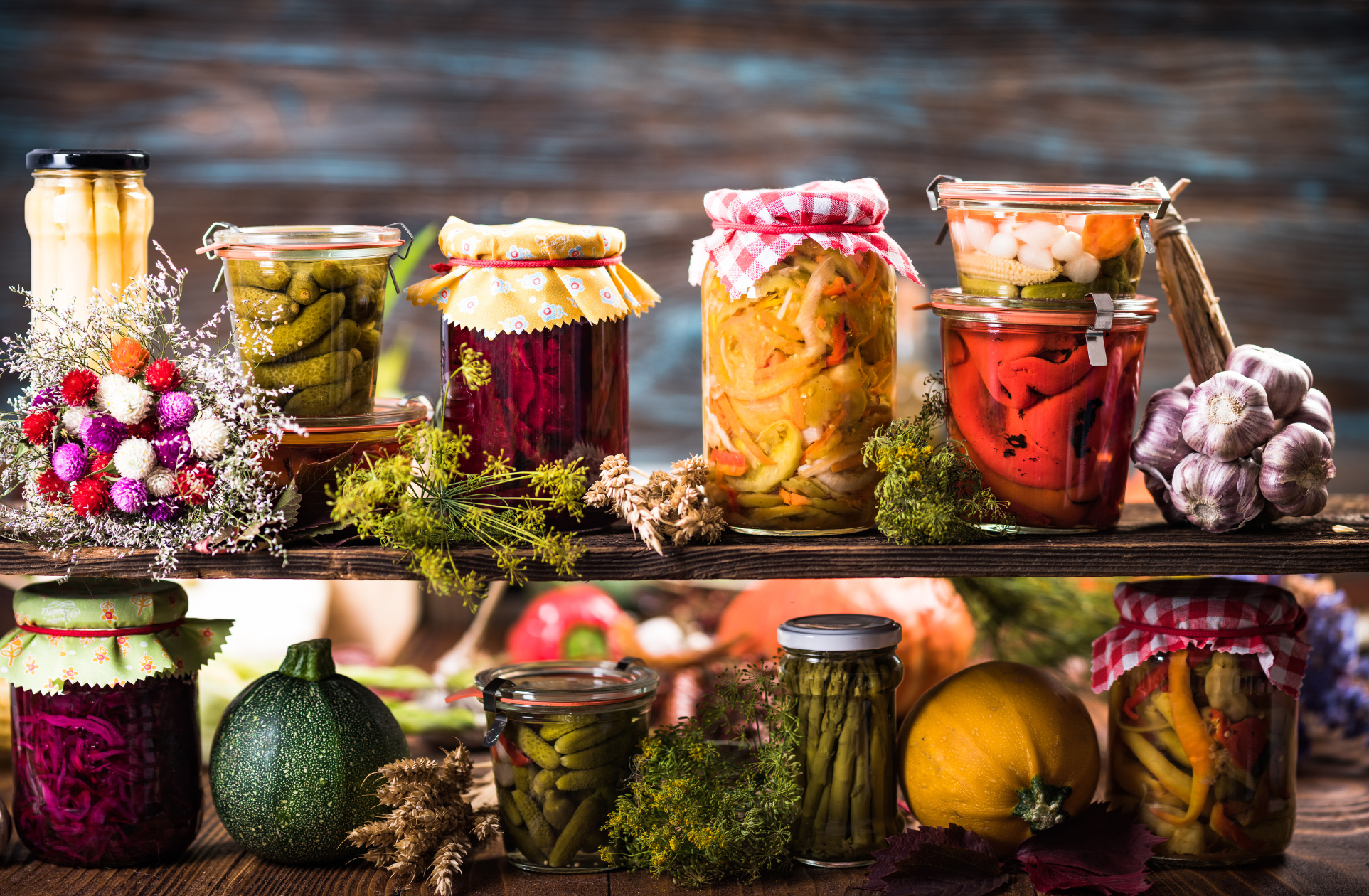What is Fermentation?
Fermentation is one of the earliest forms of food preservation. In the 1670s, fermented foods were used as an agent to avoid food spoilage and combat disease.
There are four main subgroups of fermentation: lactic acid, alcohol, acetic acid, and butyric acid fermentation.
In an oxygen-free environment, lactic-acid-producing bacteria breaks down sugar and starch to form gasses, acids, or alcohol. Oxygen removal does two awesome things. The acidity creates an unsuitable environment for pathogenic bacteria and generates enzymes, nutrients, and prebiotics for good gut microbes to thrive.
Depending on the nutritional composition of fermented foods, each produces a unique combination of polyphenols, amino acids, bioactive peptides, short chain fatty acids, conjugated linoleic acids, and phospholipids. All of which contribute to various health benefits.
Health Benefits of Fermented Foods
According to the American Society of Microbiology, scientists have discovered that your gut contains at least 10x more microbial cells than there are human cells in the body. This being said, the foods we eat also feed the microbial community in our guts. Let’s dive into how fermented foods can positively impact our health.

Improves Digestion
Fermentation works wonders for our digestion by helping to break down food and making it easier to digest. Interestingly, even those with lactose intolerance have been found to tolerate fermented dairy products because the fermentation process helps break down lactose, making it more digestible. Moreover, when it comes to complex carbohydrates and proteins, fermentation helps break down their complex structures, making them easier for our bodies to digest and absorb efficiently.
Gastrointestinal Discomfort Alleviation
Studies suggest probiotic-producing bacteria helps restore balance in your gut’s microbiome. By decreasing acidity in the gut, beneficial bacteria can grow and reproduce, outcompeting pathogenic bacteria.
One double blind control trial examined the effectiveness of a probiotic fermented drink on gastrointestinal discomfort in adults over the course of 4 weeks. Data concluded a significant improvement in gastrointestinal discomfort such as bloating, constipation, abdominal pain, and gas.
Supports Brain Health
Fermented foods are also good for brain health! Research suggests that fermented dairy consumption has preventative effects against cognitive decline. This particular study found improved microglial Aβ phagocytosis (the process of clearing harmful substances in the brain) and lower expression of inflammatory markers.
Enhances Nutritional Composition of Food
Fermented foods work their magic by improving the nutritional value of the food we eat. During fermentation, special molecules are produced that make it easier for our bodies to absorb nutrients, get rid of substances that can hinder nutrient absorption, and enhance how our bodies use these nutrients. This means that fermented foods can significantly increase the amount of important vitamins like niacin, thiamin, folic acid, and riboflavin that our bodies can benefit from. So, by enjoying fermented foods, we can give ourselves a nutrient boost!
Boosts Immune Health
Did you know that 70% of our immune system is housed in our gut? It’s true!
The molecules produced by fermented foods feed the beneficial microbes in our gut. These gut microbes then nourish the immune-supporting cells to keep our bodies healthy and combat disease.
Fun fact: Foods in the cabbage family provide the link for AHR molecules. These proteins are like the body’s police department and detect foreign substances that enter the system.

Interested in trying fermented foods?
Here’s a list of of my favorite fermented foods you can pick up at your next trip to the grocery store:
- Tempeh
- Yogurt (with live active cultures)
- Sauerkraut
- Kefir
- Miso
- Pickles veggies
- Kimchi
- Cottage cheese (with live active cultures)
- Kombucha
- Sourdough bread
*Always check the nutrition label for the amount of added sugar, salt, and fats to some of these products!

If you’re like me and enjoy recreating recipes at home, give this homemade sauerkraut recipe a try!
Takeaway
Fermentation is the process of breaking down sugars into either a gas, acid, or alcohol.
Sauerkraut, kefir, kombucha, miso, tempeh, and yogurt, are some of the most commonly consumed fermented foods. All of which produce a unique array of molecules that are found to have profound impact on our health. These foods may reduce gastrointestinal discomfort and improve digestion, symptoms of IBS, as well as, immune and brain health.
Not only are they great for your health, but they’re the perfect way to elevate a dish!



